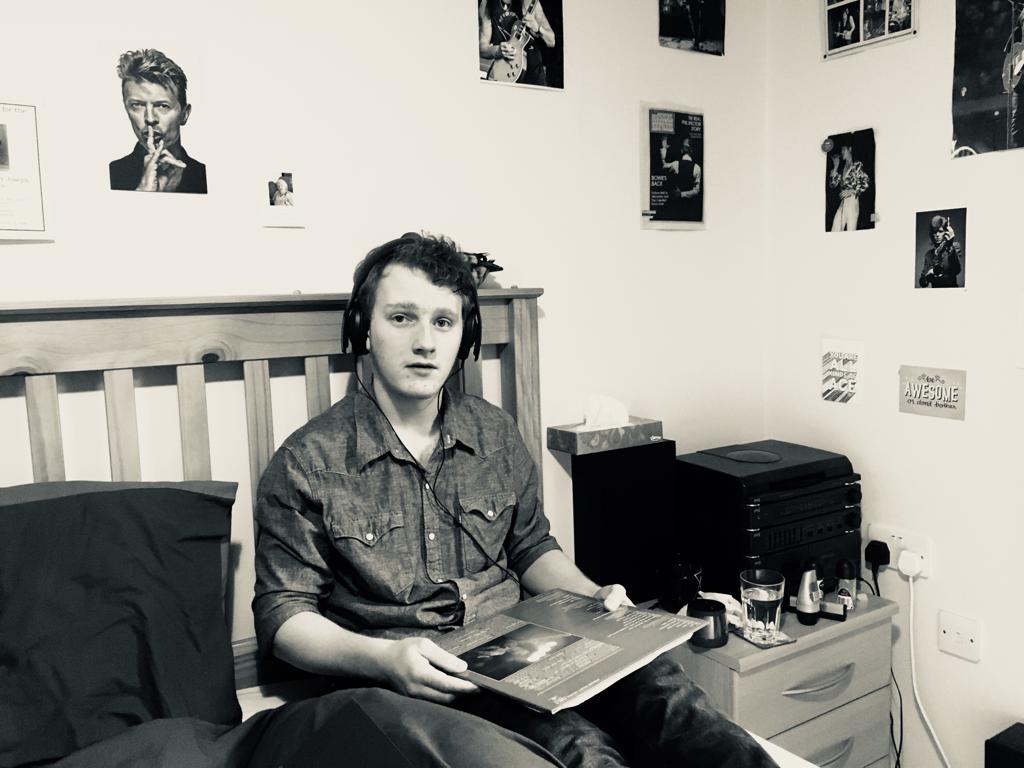Album Review: Moby – Reprise
5 min read
Moby is a staple of the electronic music scene and some would even go so far as to call him a pioneer of the genre. The peak of his popularity came with the release of his 1999 album Play, which still holds up as a stunning listen to this day. Ever-experimental, Moby’s latest release entitled Reprise sees the American producer reworking a selection of songs from his musical history and includes some of his best known and loved tracks. He is joined on the album by The Budapest Art Orchestra, making the album an interesting project at face value.
 For example, the intriguing juxtapositions expected from an electronic producer employing a classical orchestra stand rich throughout the album. They can be heard straight away in opening song Everloving, which serves as a fitting choice to begin what is largely an acoustic and mellow album. The fingerpicked guitar is more obviously present than in the original while strings replace the beat. The piano in the track is persistently trying to be happy but it is the weeping sadness of the strings which provide the juxtaposition. However, all of this is made trivial when the whole song explodes smoothly, much like the smooth crashing of the drums in the original.
For example, the intriguing juxtapositions expected from an electronic producer employing a classical orchestra stand rich throughout the album. They can be heard straight away in opening song Everloving, which serves as a fitting choice to begin what is largely an acoustic and mellow album. The fingerpicked guitar is more obviously present than in the original while strings replace the beat. The piano in the track is persistently trying to be happy but it is the weeping sadness of the strings which provide the juxtaposition. However, all of this is made trivial when the whole song explodes smoothly, much like the smooth crashing of the drums in the original.
The juxtaposition of combining an electronic beat and string section occurs often in the album, such as in Go, which actually is a funky alternative to the original, employing bongo drums while low register piano shakes the track and mini crescendos recur frequently. The beat sounds good on this track, but the presence of electronic drum samples is questionable in others, as in the case of The Lonely Night. The beat comes in after the track has seemingly already committed to one form and thus takes away from the feel of the thought-provoking performance, while the slight mismatch in the timing of returning featured artist Mark Lanegan’s and newly featured artist Kris Kristofferson’s vocals can be strewn as either artistic in one extreme or sloppy in another.
As interesting as musical juxtapositions can be, they run the risk of inhibiting the potential for a completely harmonious mix, a foible some of the tracks on Reprise suffer from. The individual components of Porcelain sound nice but the amalgamation of them is arguably not as attractive as one may have hoped. And it may be that my deep affection for the Bourne series of films and its theme tune biases my judgement, but the way in which Moby attempts to build his reworking of Extreme Ways is not as captivating to the listener as it could be, particularly when they are familiar with the brilliance of the original. The strings feel too slow against the other instruments, the intro guitar sounds too thin, and the vocals are too up-front and not as moving as in the original. Conversely, track 11; Lift Me Up, provides an example of the supreme arrangement missing from many of the songs on the album. It triggers a feeling from the lyrics more befitting of the provocative title, making the song sound more mature and contemplative than the original, a feeling exemplified by the cello. Strings and backing vocals help the chorus enlarge the song but with the first chorus being so short, the listener is left waiting for the next one while the violins tease its arrival. Even Moby’s vocals have a more controlled sincerity, depth and meaningful quality to them.
The fact that Reprise’s version of Lift Me Up offers a different feeling than the original is not something that can be said for too many of the other compositions. When an established artist releases an album filled solely with reworks, listeners need to be convinced the songs are approached from a different angle and most would hope or even expect the new versions to be radically different. And although it may be an oversimplification, one would not be too far from the truth to conclude that Moby’s new versions of old songs simply replace electronic beats with strings and the vibe of the songs remain relatively unchanged. Having said that, Moby does take the new version of Why Does My Heart Feel So Bad a different way, making it more slowed down and mellowed. The backing vocals feel slightly familiar but the lead vocals, courtesy this time round of Deitrick Haddon and Apollo Jane, have been drastically changed. However, it is God Moving Over The Face Of The Waters that stands out as being dramatically better than the original. It features pianist Vikingur Olafsson, who has been referred to as ‘Iceland’s Glenn Gould’, so naturally the piano sounds better, and the countermelody at the beginning of the song which was simply off-putting in the original is played on pipes and so is much more palatable and pleasing. The benefit of having such a fantastic pianist is clear and the consistent melody of the piano holds everything to higher levels while the strings are used more effectively than is heard elsewhere on the album.
Not enjoying listening to Reprise as much as expected may simply be due to having such high expectations of Moby, and of the possibility that comes with combining electronic music with such a well-renowned orchestra as The Budapest Art Orchestra. It can also be put down to listening to the album more intently and critically than a pure fan would. Indeed, as can be expected from knowing the story of the album, the LP is made up of weeping strings, electronic beats, and varied vocals and instrumentation. It being a Moby album, it hosts an interesting palette of talent, with many relatively unknown artists featuring, such as Luna Li, Nataly Dawn & Alice Skye on The Great Escape and Novo Amor, Mindy Jones & Darlingside on Almost Home. The most notable guest appearance though is Gregory Porter on Natural Blues. Porter is one of very few modern singers able to harness the timbre of old to match that of American folk singer Vera Hall, whose 1937 song Trouble So Hard is sampled on the original, while fellow guest Amythyst Kiah has such a deepness to her voice that it goes perfectly with the song given its origin story.
Despite these positives, critiquing the album must engage the added layer of comparing the songs to their original counterparts in search of evidence of song evolution, but this is where Reprise falls short. It seems Moby has less trouble changing other people’s songs however, as the cover of David Bowie’s Heroes that appears on the album showcases a different yet soft rendition of the classic, with vocalist Mindy Jones exerting beautiful control over her voice. The version has a very atmospheric feel thanks to the soft but constant plucked guitar, subtle strings, and sparse but powerful piano chords. The song gives off an aura very different to the original, which is obstinately kept consistent throughout, offering it to the audience and asking them to take it or leave it, and I for one am choosing to take it!
It is true Moby’s latest album Reprise is found wanting in some aspects. However, it is still Moby, it is still The Budapest Art Orchestra, and it is still a collection of known and loved songs and this alone makes it well worth a listen.




